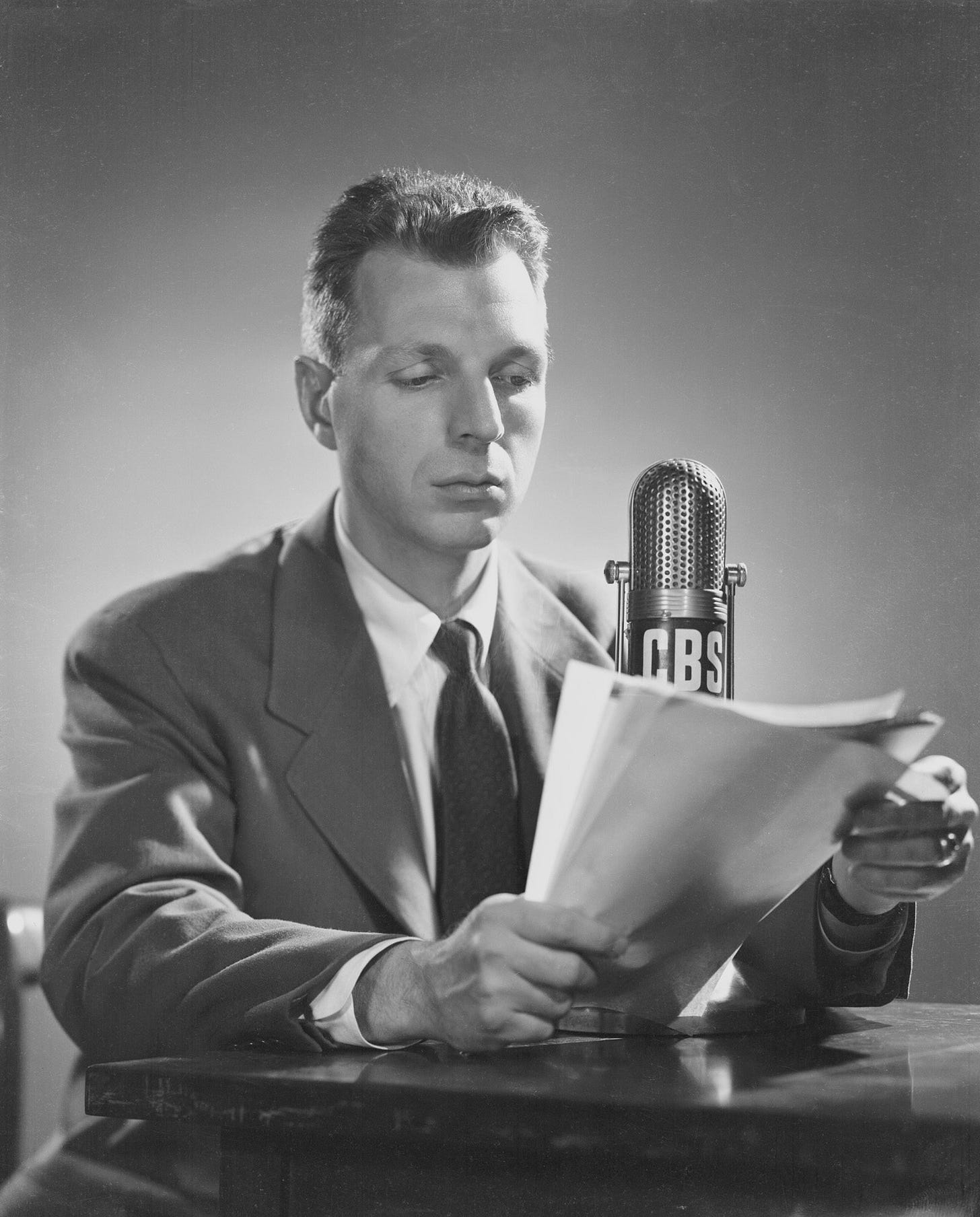Richard C. Hottelet reported from the front lines for CBS
Richard C. Hottelet, born September 22, 1917 in Brooklyn, spent decades covering world affairs for print and broadcast outlets but is best known for his work at CBS.
The last correspondent recruited to join the famed "Murrow Boys" in 1944, Hottelet already had established himself in journalism circles with his wartime coverage.
On March 15, 1941, when he was working for the United Press at its Berlin bureau, Gestapo officials came to his apartment early one morning and arrested him for suspicion of espionage. Hottelet, whose parents had both emigrated from Germany, endured lengthy interrogations and remained in custody for nearly four months before being released on July 8.
He later worked for the Office of War Information before joining Edward R. Murrow's London-based CBS team in January 1944. On D-Day, Hottelet flew over the Normandy coast in a 9th Air Force B-26, providing one of the first accounts of the invasion:
I watched the first landing barges hit the beach exactly on the minute of H-Hour. I was in a 9th Air Force Marauder flying at 4,500 feet along 20 miles of the invasion coast.
From what I could see in these first few minutes, there was nothing stopping the assault parties from getting shore. We spent about half an hour over enemy territory. We flew over and bombed some of the coastal fortifications, but except for some light flak from inland positions and from some tanks firing at us, we saw no enemy gunfire.
The only other sign of life in enemy territory were some white and yellow parachutes dotting the ground where our paratroopers had hit the ground.
He went on to capture remarkable audio of house-to-house fighting in Aachen and reported from the midst of the Battle of the Bulge, where he noted German troops were disguising themselves in American uniforms.
Hottelet also reported on rumors of German troops slaughtering Belgian civilians during the Bulge in a Dec. 20, 1944 broadcast: “There is no pretense here of conquest. It is a last, desperate blow to inflict pain and get revenge.”
On March 24, 1945 Hottelet was aboard a B-17, observing the “Operation Varsity” airborne invasion of Germany, when the Flying Fortress was hit by anti-aircraft shells and caught fire. He had to bail out of the plane but parachuted to safety behind British lines, where he was able to broadcast his exploits to CBS listeners the same day.
A month later he was present for the linkup of U.S. and Russian troops at Torgau on the Elbe, and as the surrender came in early May he spent three days with Soviet troops in Germany — “mainly because the Russians wouldn’t let us go while they examined our papers very, very thoroughly.”
That would serve as a preview of the coming Cold War, which would dominate the rest of his career with CBS.
Hottelet remained with the network through his retirement in 1985, reporting from the Soviet Union, West Germany and the United Nations. He died in 2014 at age 97.




